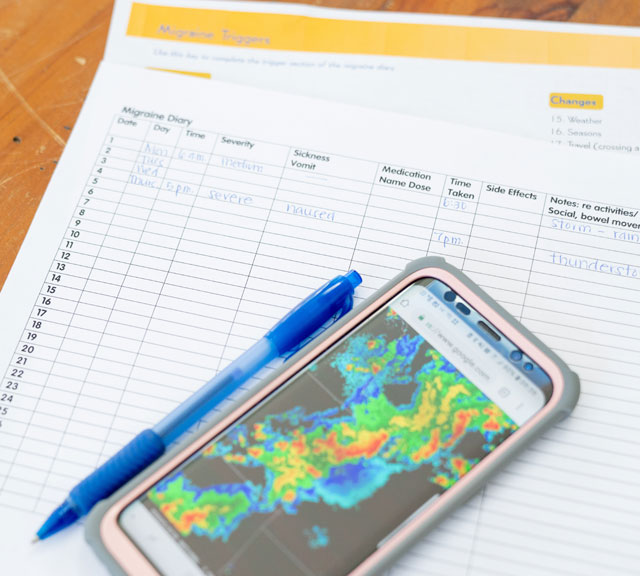Is the Weather Literally Giving You a Headache?

Find Your Perfect Match
Answer a few questions and we'll provide you with a list of primary care providers that best fit your needs.
What’s causing your headaches? Of the many studies aimed at identifying headache triggers, sensitivity to these weather conditions nearly always makes the list:
- Humidity
- Barometric pressure
- Intense sunlight or glare
- Strong wind
- One or more of the above combined with other factors like stress or fatigue
What’s Barometric Pressure?
Barometric pressure is the weight of the air. It falls in humid conditions when the air is moist, and when you increase altitude (like driving or hiking up a mountain). It rises when the weather is clear and dry.
Some scientists believe that when the barometric pressure changes, it can cause pressure between your sinuses, which results in a chemical imbalance and a headache.
Even if the weather isn’t the cause of your headache, a change in the weather can make an existing headache worse.
Do Weather-Related Headaches Happen To Everyone?

Weather-related headaches are thought to be a genetic trait, passed from parent to child, increasing sensitivity to certain changes in the environment, including the weather. If you have this inherited trait, being exposed to changes in the weather can trigger migraines or sinus-related allergy headaches.
And even if the weather isn’t the cause of your headache, a change in the weather can make an existing headache worse.
Changes in weather and season can also aggravate allergy symptoms, which contribute to headaches. Fluctuating weather patterns, for instance, can lead to winds that stir up allergens. And when winter turns to fall, budding and flowering trees and plants release pollen into the air.
Learn Your Headache Triggers
Figuring out what causes or worsens your headaches is the first step in finding an effective treatment.
Tracking your headaches on a calendar or journal can help. Write down the type of headache you had, where it was located in your head, and what happened that day. For instance, record anything you ate that was out of the ordinary, and changes in weather patterns, temperature, and air pressure.
Of course, there’s nothing you can do to change the weather. But knowing what (or if) one or more weather conditions act as a trigger is valuable information. These clues will help your doctor determine the best treatment options for you.
Find Your Perfect Match
Answer a few questions and we'll provide you with a list of primary care providers that best fit your needs.
Source: American Migraine Foundation; Migraine Relief Center




